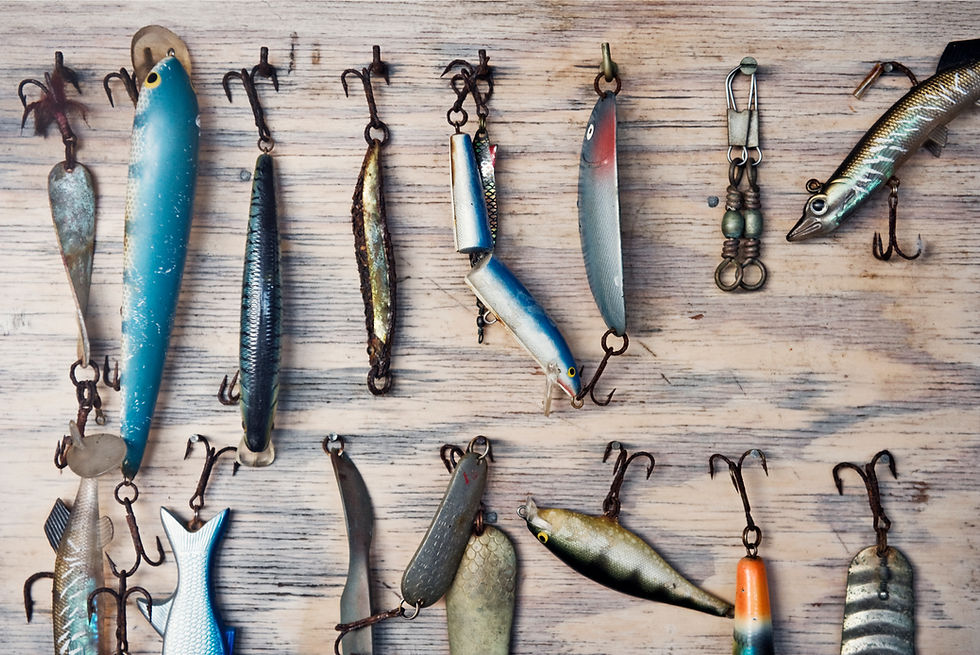Five Simple Tips to Go Fishing the Lake Friendly Way
- ryan85209
- Aug 20, 2020
- 3 min read
Updated: Jul 26, 2021

Fishing can be a great time whether you are looking for a new hobby, a way to catch your food, or a seasoned angler. Anyone fishing can make small changes to improve the health of the freshwater resources that are essential habitats for Manitoba fish.

1. Catch and release fish unless you will eat it
If you aren’t going to eat a fish, releasing it back into the water gives another angler the chance to catch it and allows the fish to continue living and potentially mating (which increases the fish population).
Ensuring the fish population is high enough for the ecosystem to function correctly, including supplying enough food for other animals, is known as sustainable fishing. Overfishing leads to population crashes, which can be unrepairable. Provinces (and National Parks) set catch limits depending on their lakes, rivers, streams, and oceans.
A short-term or long-term decrease in fish populations would result in economic losses for Manitoba’s tourism and fishing industries. The walleye fishery in Lake Winnipeg supported 100,000 anglers and contributed $102 million (net) to the province over a two-year period, said Manitoba Wildlife Federation.
Check Manitoba Anglers’ Guide to see if there are specific requirements for the lake or waterway you are going fishing at.

2. Choosing your fishing spot
Try fishing from the shore or paddling to your location
If you need to use a boat, consider renting or buying a boat with an electric motor. If not, be careful about gas and oil spills. Motorboats can leak oil into our precious waters. For every drop of oil added to our water, 25 litres become undrinkable.

Great Manitoba Fishing Spots
As long as you have a fishing licence, you can fish anywhere near the water on public land. In Winnipeg, you can often find people fishing in St. Vital Park, Assiniboine Parks, and The Forks.
Outside of Winnipeg, there are many great places to fish in Manitoba. Some popular spots include the Red River between Lockport and Selkirk, La Barriere Park (on the La Salle River), Brandon, and Turtle Mountain.

3. Choosing the Right Fishing Gear – Biodegradable and Non-Toxic
Tackle and Lines
Your tackle and line might leak harmful materials into the water if you have to cut the line because it gets snagged on the bottom of the lake or river. Plastic does not quickly decompose, can stay in the environment for hundreds of years, and can be toxic to a creature that tries to eat it.
You can get biodegradable lures with all the bright colours of typical plastic lures, but they will decompose at the bottom of the water or in the stomach of a creature that tries to eat it.
Try to find tackle boxes made out of recycled products.

Fishing weights
While harmful lead used to be the favoured material for fishing weights, you can now find environmentally friendly weights made of steel or tin. It’s also important to make sure you get chip-resistant weights, so the paint doesn’t come off when the weights hit hard surfaces, like rocks, in the water.

4. Leave no trace
Don’t leave anything behind that you brought with you. Don’t toss out fish remains on beaches or shorelines. Boat launches, campgrounds, and popular fishing locations often have containers for fish remains. If you can’t find one, start a garbage bag.

5. Don’t take aquatic invasive species home with you
Clean, drain, dry, and decontaminate your boat or any gear (like fishing gear, waders, and ropes) that entered the water. Zebra mussels are a serious concern in Manitoba right now, posing a threat to the environment and potentially requiring millions of dollars to control the spread.

Fishing is a fun activity that gets you out into nature and is an easy way to physically (socially) distance from friends and others outside your household. You can spread out on the shoreline or take separate boats to meet up in a new spot or on your favourite lake.
Act now to protect and preserve our freshwater resources. Small actions can add up to significant impacts.



Comments